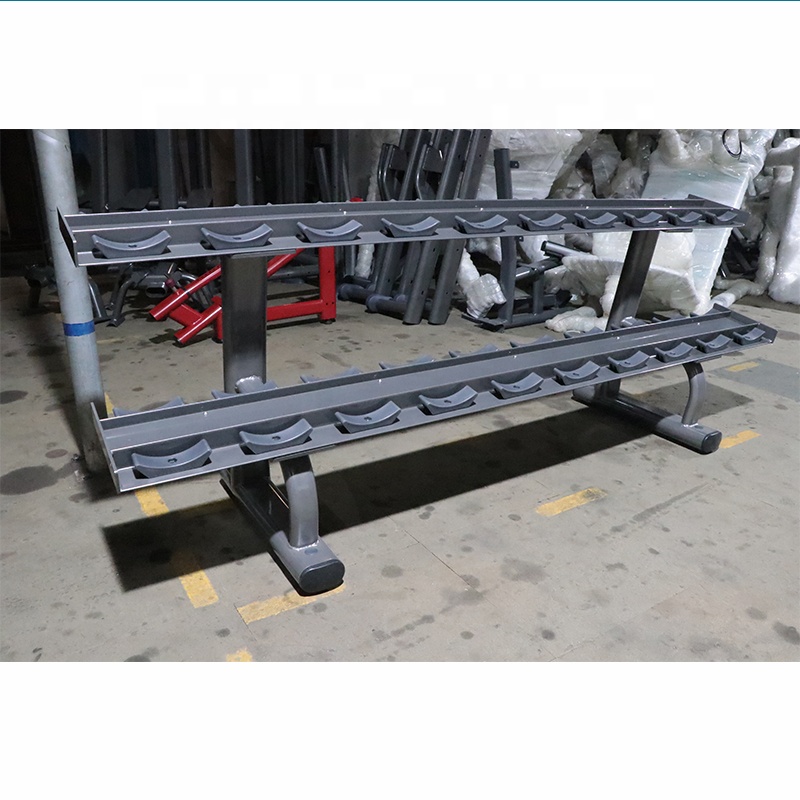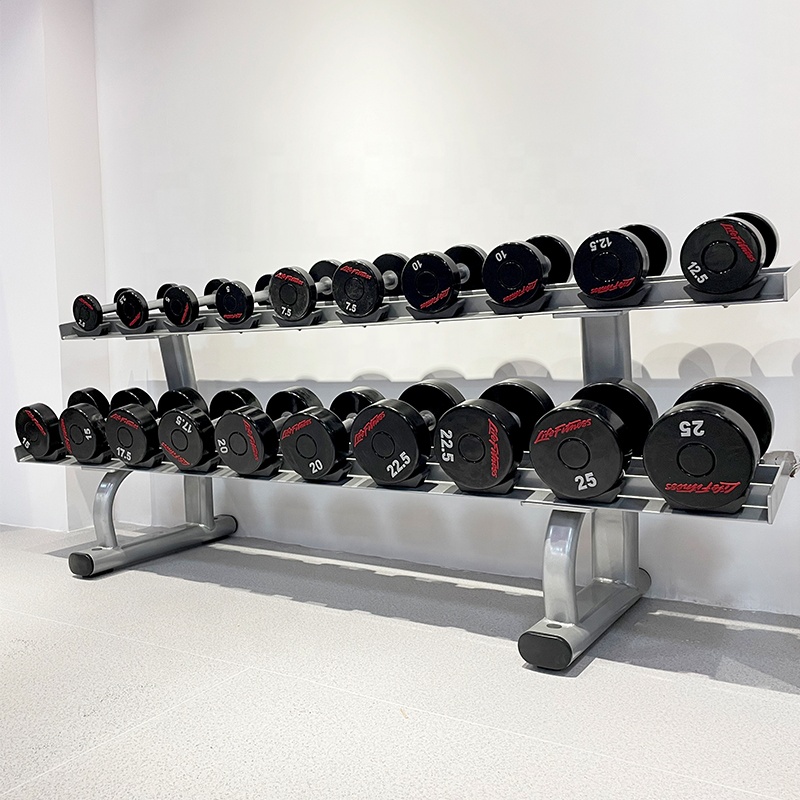Remember to always handle weights with care, regardless of their position on the rack, and to follow proper lifting techniques to minimize the risk of injury.Is it okay to carry dumbbells everyday?
Carrying dumbbells daily can be beneficial for fitness and strength training, but whether it's "okay" depends on your goals, current fitness level, and the specific way you're incorporating them into your routine.
### Benefits of Daily Dumbbell Use:
1. **Enhanced Strength and Endurance:** Regularly using dumbbells helps build strength and endurance in various muscle groups.
2. **Versatility:** Dumbbells allow for a wide range of exercises that target different muscles, improving overall body balance and coordination.
3. **Flexibility in Training:** They can be used for both high-intensity workouts and more moderate, steady-state exercises like walking or yoga.
4. **Portability:** Dumbbells are relatively light and easy to move around, making them suitable for home workouts or travel.
### Considerations:
1. **Warm-Up and Cool-Down:** Always start with a proper warm-up and end with a cool-down to prevent injury and aid recovery.
2. **Progression:** Gradually increase the weight and intensity of your workouts as you progress to avoid plateaus and ensure continuous improvement.
3. **Form:** Maintaining correct form is crucial to avoid injuries. If unsure, consider working with a personal trainer or fitness professional.
4. **Frequency:** While daily use can be beneficial, it's important not to overtrain. Listen to your body and allow for rest days to prevent burnout and injuries.
5. **Muscle Recovery:** Give your muscles time to recover between workouts, especially when focusing on particular muscle groups.
### Conclusion:
Carrying or using dumbbells daily can be perfectly fine if integrated into a well-rounded fitness plan that includes adequate rest, proper technique, and progressive overload. It's essential to tailor your routine based on your specific fitness goals, physical condition, and any medical considerations. Always consult with a healthcare provider or a qualified fitness instructor before starting any new exercise regimen.What are the disadvantages of dumbbells?
While dumbbells are an excellent tool for strength training, they do have some potential disadvantages:
1. **Limited Weight Options**: Dumbbells come in a variety of weights, but they may not offer the same range as weight machines or barbells. For example, it can be difficult to find very light or very heavy dumbbells.
2. **Space Requirements**: Storing a large number of dumbbells can take up more space than other types of equipment. Each weight requires its own spot, which can be a limitation if you have limited storage space.
3. **Potential for Injury**: If not used correctly, dumbbells can lead to injuries such as joint pain, especially in the wrists and elbows. Incorrect form or lifting too heavy can cause strain or sprains.
4. **Lack of Variety**: While there are many exercises that can be done with dumbbells, they might not be suitable for all types of workouts. For instance, exercises that require a lot of stability, such as certain types of leg presses or seated rows, might be better suited for machines.
5. **Cost**: The cost of purchasing a full set of dumbbells can be high, depending on the number of weights you need and their quality. This might be a barrier for some individuals compared to other forms of fitness equipment.
6. **Resistance Bands vs. Dumbbells**: Some people might find resistance bands to be more versatile and easier to use for a wide range of exercises, particularly those who travel frequently or have limited space.
7. **Adjustability Limitations**: Unlike adjustable barbells where you can easily change the weight by adding plates, dumbbells typically have fixed weights unless you have an adjustable dumbbell set. This means you cannot easily vary your workout intensity from one exercise to another.
8. **Learning Curve**: New exercisers might find it challenging to learn how to use dumbbells effectively without proper guidance. Incorrect technique can lead to less effective workouts or injuries.
9. **Limited for High-Intensity Workouts**: For high-intensity interval training (HIIT) or other fast-paced workouts, dumbbells might not be the most efficient tool due to the potential for slower movement times when transitioning between exercises.
It's important to consider these factors when deciding whether dumbbells are the right choice for your fitness goals and needs.




